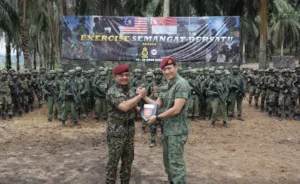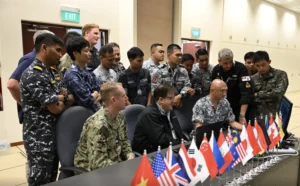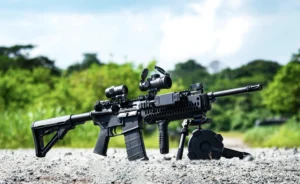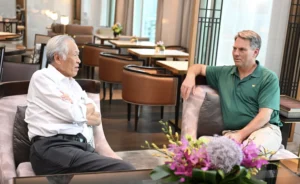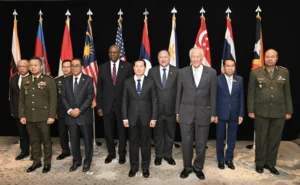Singapore Army eyes full resumption of activities by end-2022 as Covid-19 controls ease
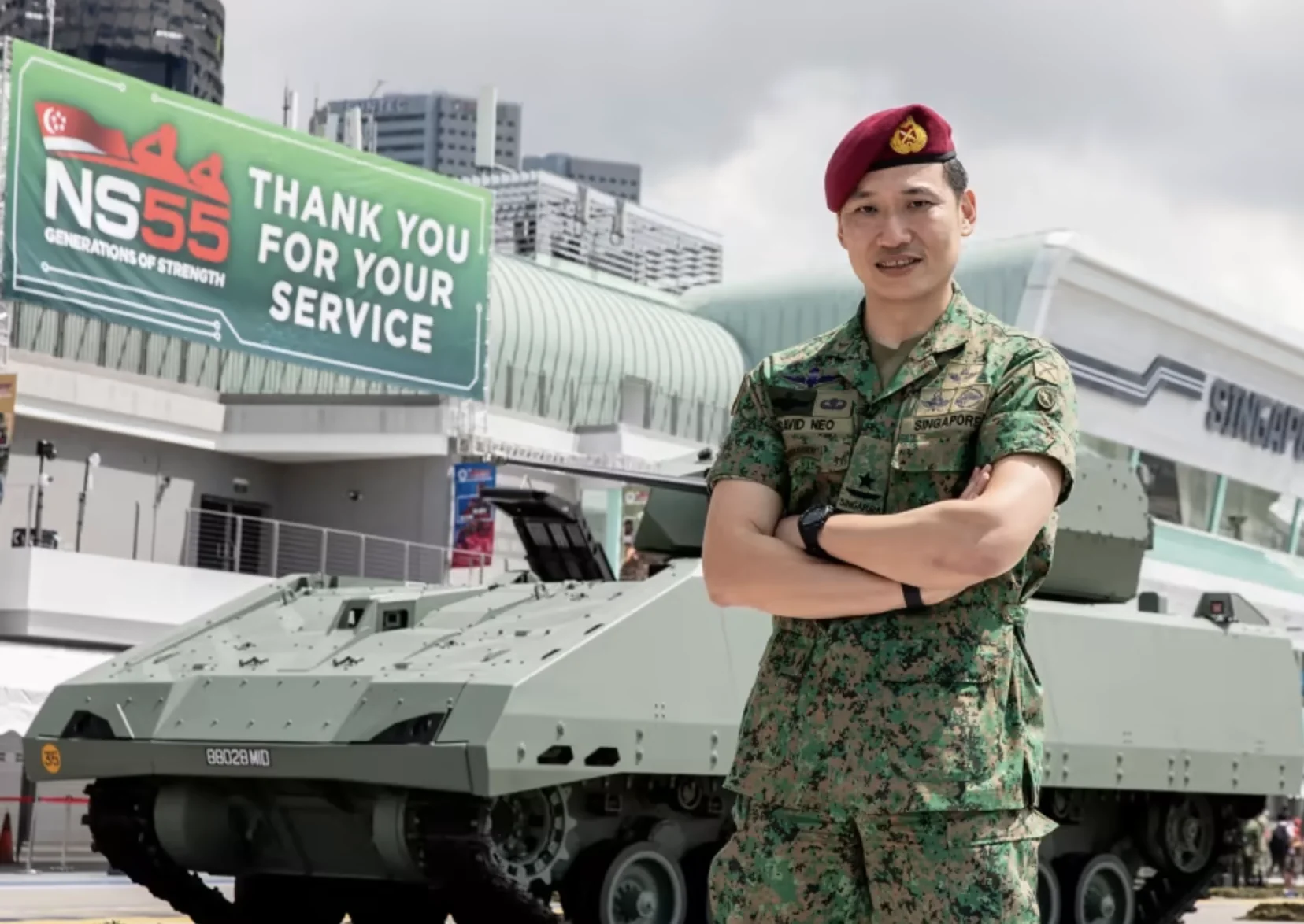
Chief of Army David Neo (pictured) would like people to thank operationally ready national servicemen for their service, especially for their contributions during the Covid-19 pandemic.
SINGAPORE — The Singapore Army is aiming to resume all its activities that have been disrupted by the Covid-19 pandemic, including overseas exercises and in-camp training, by the end of the year, Chief of Army David Neo said on Wednesday (May 25).
“Our army’s focus for this year is to resume our activities, both to continue to strengthen our current operations and to resume our overseas training exercises,” Brigadier-General (BG) Neo said in his first interview with the media since he was appointed chief of army in March this year.
After Covid-19 struck in early 2020, National Service (NS) activities were suspended. Plans by the Singapore Armed Forces (SAF) to resume these activities were derailed more than once when infection controls had to be tightened due to the different coronavirus strains.
With restrictions now largely eased, the army in March this year conducted its first large-scale mobilisation exercise since the start of Covid-19, activating more than 2,000 operationally ready national servicemen (NSmen).
Army personnel took part in overseas exercises in the United States last year and in Germany earlier this year.
Later this year, the army will restart Exercise Wallaby at Shoalwater Bay in Queensland, Australia — an exercise that involves more than 2,700 soldiers from different vocations.
Bilateral exercises with partner nations have also resumed, BG Neo said.
For most army in-camp trainings held over the past two years, NSmen were placed in “functional groups” of 40 men and were not allowed to interact with those from other groups to reduce the risk of infections.
This grouping system has since been removed.
BG Neo said that training in these small groups have made NSmen more familiar with operations in small units such as in a section or at a platoon level.
The down side is, their familiarity with operations on the larger company level has suffered as a result.
“So there’s a trade-off and it is something that we’ve noted.”
BG Neo also said that earlier this year, the army reached 84 per cent of its “pre-Covid level of training”, based on an internal metric that judges the pace of training, number of in-camp trainings, mobilisations and evaluations.
Asked whether the army will retain any safeguards against Covid-19, he replied that the army will continue to adopt a “very agile approach” that is in line with nationwide safety measures. Extra precautions will also be taken where necessary.
Stressing that the army has been imposing extra measures such as strict testing requirements for NSmen, he added: “I’m also quite happy to note that even in the past two years, we’ve never had any major clusters as a result of our training.”
BG Neo was speaking at the sidelines of the Army Open House 2022 at the F1 Pit Building. The event was being held for the first time after a five-year hiatus. Wednesday’s event was held only for some students and other selected guests.
MANPOWER SHORTAGE
As Singapore recovers from the pandemic, industries across large swathes of the economy have been facing a labour shortage.
For SAF, that has been a perennial problem even before Covid-19.
BG Neo said that the army has been experimenting with so-called “manned-unmanned” teams where manned troops use technologies such as drones.
In June last year, for example, Defence Minister Ng Eng Hen unveiled the V15 mini-unmanned aerial vehicle that would be used for surveillance.
“Starting from this year, you will start to see many of these robots going down to our units, so that’s one tangible way in which we try to relieve manpower,” BG Neo said without giving details on what these robots were.
The next step forward would be looking into so-called “one-to-many controls”, which are more autonomous modes of operating such equipment.
For that, the defence technology agencies are now researching with overseas partners as well as educational institutions in Singapore on algorithms that allow soldiers to not be as tied down when controlling these robots so that they may perform other tasks
The army is also opening up deployment opportunities for soldiers, BG Neo said.
With newer technology, soldiers need not have high physical standards to conduct certain tasks, unlike in the past. The emergence of cyber threats also means that more soldiers are needed to shore up Singapore’s digital defence.
“People who previously did not qualify for certain front-facing jobs or some jobs that directly contribute to defence, now they can take on these jobs,” BG Neo said.
“Overall, I think we are quite confident from where we are,” he added.
“We’ve done the right groundwork and now, we are at the stage where… our soldiers should start experiencing more manned-unmanned teaming and robots coming in to help them do their work better.”
As for whether the soon-to-be established Digital and Intelligence Service will be hampered by the army’s manpower shortage, BG Neo said that the service will not have to be formed from scratch. It is SAF’s fourth service after the three land, sea and air forces.
SAF already has existing capabilities in C4I (command, control, communications, and computers and intelligence) that would be drafted into the new service.
Updates on the service’s formation and whether it is on schedule to be established by the fourth quarter of the year will be provided at a later date.
NATIONAL SPORTSMEN IN SERVICE
Earlier this month, two events during the Southeast Asian (SEA) Games in Vietnam cast renewed attention on how NS obligations could hurt the ambitions and performances of sportsmen competing at the highest levels.
In the Singapore men’s football team’s first defeat in a 5-0 loss against Thailand, the Thai player who scored the first goal that match, Ben Davis, was not a stranger to the Singapore team.
Davis represented Singapore at a youth level and made the news in 2018 when he signed a professional contract with English Premier League football club Fulham.
However, he was unable to defer his NS and in 2019, he defaulted on his NS obligations while staying overseas without a valid exit permit.
Then, last Thursday, swimmer Joseph Schooling urged the country to have a “national dialogue” on the expectations of athletes serving NS.
Schooling, Singapore’s only Olympic champion who won a gold medal in 2016, enlisted for NS earlier this year. He said that he had made strides in the past few months, but it had also been “pretty challenging” juggling NS and sporting commitments.
Responding to these on Wednesday, BG Neo pointed to Dr Ng’s 2018 comments on the rejection of Davis’ deferment in Parliament.
He said that Dr Ng’s points on the point about sacrifice during NS resonate strongly with him.
“The whole idea of National Service is really about sacrifice. It’s about the few coming together, putting aside what’s important to us, to work for the needs of the larger group — the defence of your nation,” he continued. 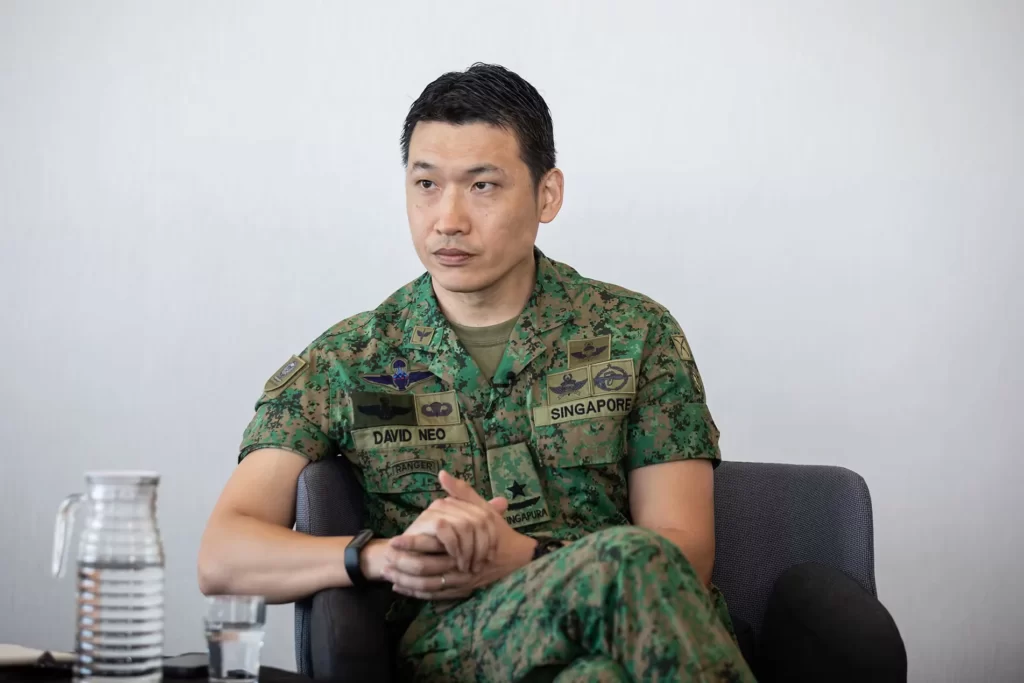
One of several priorities for Chief of Army David Neo (pictured) is to continue on the track to transform the army into a next-generation defence force by 2040.
For sportsmen who are serving NS, BG Neo said that the army will support them in their sports training as much as possible within guidelines.
However, when it comes to critical training such as basic military training and vocational training, that must come first.
‘THANK YOU FOR YOUR SERVICE’
BG Neo said that adapting to the pandemic over the past two years has been challenging for the army.
When the outbreak hit, BG Neo was director of joint operations, where he oversaw SAF’s contributions to the national fight against the infectious disease.
More than 6,000 people from the army were deployed to eight different task forces ranging from getting surgical masks to every Singaporean household within 48 hours to getting teams into migrant worker dormitories to control the outbreak that was a key concern for the country at the time.
Several officers volunteered to help manage the dormitories despite the risk, BG Neo noted.
“Kudos to our people. I think our people embraced the challenge very well and if you think about it, the demands we made of our people were huge.”
With this year being the 55th anniversary of NS, he issued a challenge to the public — find five NSmen that you do not know, preferably in uniform, and just say five words to them: “Thank you for your service”.
“It’s a very simple thing to do… but it will mean the world to them.”
